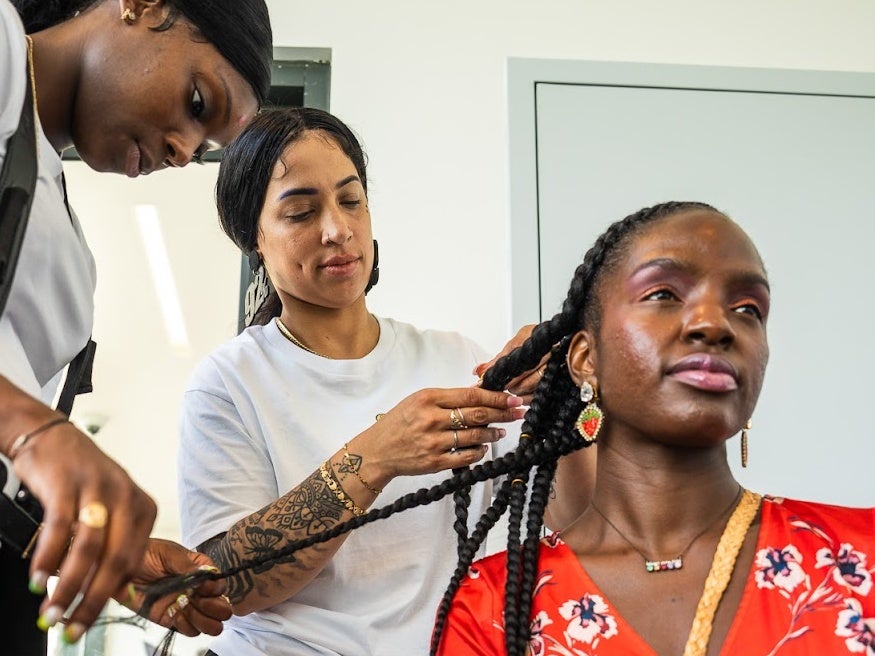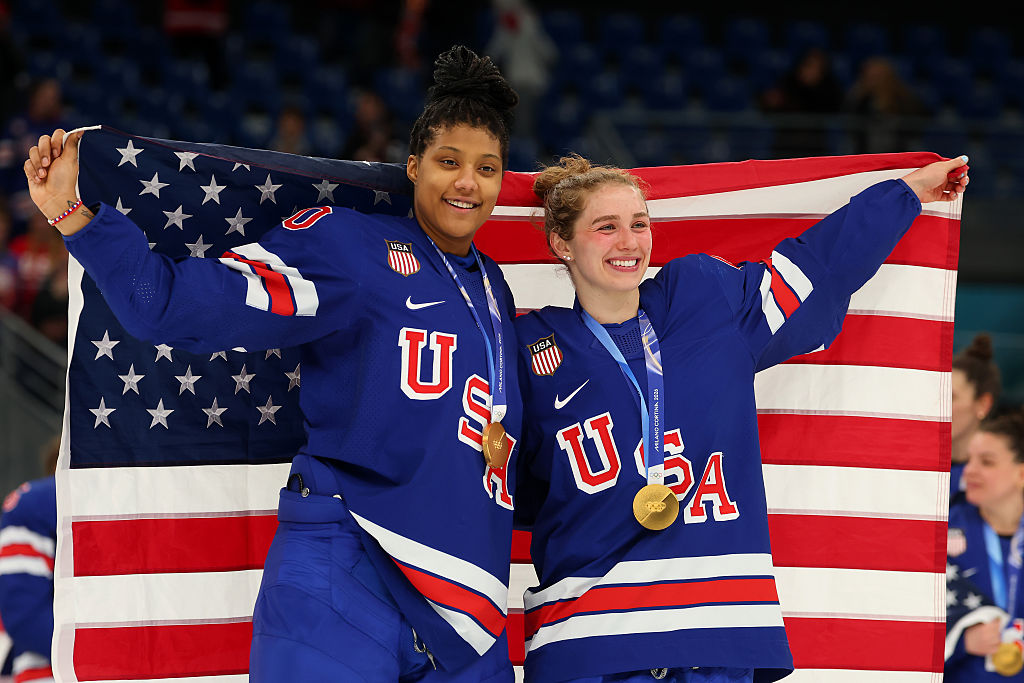Brooklyn has long been considered a melting pot of culture. And on a sun-drenched Saturday afternoon in June, the borough made way for a new kind of cultural experience—one rooted in Black beauty.
At the heart of the Brooklyn Navy Yard, Cornrows x Curls: The Hair Festival gathered community, culture and commerce under one roof—reminding us that, for Black women, hair has always been more than just hair. It’s history. It’s home. It’s power.
It’s not every day that you’re served cornbread with a side of curls, but that’s exactly the magic that Angela Pennyfeather and Karyne Tinord have cooked up. Cornrows x Curls is the brainchild of the duo are on a mission to reframe the natural hair conversation. Pennyfeather is the founder of BK Natural Hair Fest, a gathering dedicated to embracing and educating around natural hair, and Tinord is the founder of the creative agency Kay de Très and the creator of Cornrows & Cornbread. This storytelling platform explores the intersections of hair, culture and cuisine.
Together, they crafted an experience that wasn’t just about hair, it was about home, heritage and honoring Black identity in all its textured glory. “The purpose of this event is to celebrate natural hair, celebrate community and celebrate Brooklyn,” Pennyfeather tells ESSENCE. “I grew up in the hair salon, so this event was also paying homage to those women and letting them know we haven’t forgotten about them.”
Where Curls, Cornbread And Commerce Collide
To Pennyfeather’s point, walking into Building 92 felt like stepping into a reimagined beauty salon-meets-boardroom, with cocktails, cornbread and an array of beauty and wellness products on display and for sale. The festival featured The Crown Sessions, an intimate panel series moderated by Pennyfeather and Tinord, bringing together Black beauty powerhouses and allies alike. Lisa Price, founder of Carol’s Daughter; media maven Angela Yee; Genesis Dominguez of Honey Beauty NYC; and celebrity stylist and Sally Beauty ambassador Gregory Patterson were among the panel participants.
“With the privilege I have working with Sally Beauty and with my access and platform, my purpose and responsibility has always been, ‘Who can I pull up a chair for? Who can I pass the mic to?’,” Patterson said. “That’s why it was so important for me to be here with the community and support this community,” she continued.
Between panels, guests sipped on cold beverages at the Cornrows & Cornbread Café, enjoyed complimentary coffee from Coffee Uplifts People and indulged in self-care with hand massages from Lynn New York. Beauty consultations with stylists and dermatologists kept the energy high, while the vendor marketplace buzzed with Black-owned brands showing off products made specifically for textured hair.
“There aren’t many events like this in Brooklyn, so it’s exciting to be a part of this,” said Frantzie J., owner and creator of 6-year-old Douce Haus, an eco-friendly luxury candle company. “Especially being a Black woman with natural hair, I find that it’s very important to be in this type of community with other women with similar experiences and backgrounds,” she added.
The business of Black hair is booming. But are we winning?
Black women have long been the tastemakers of beauty, yet the industry still lags in giving us our just due. The textured hair-care market in the U.S. is worth an estimated $2.5 billion, and globally, the Black hair-care industry surpasses $10 billion, according to The Texture Gap report. Still, Black-owned beauty brands hold just 2.5% of total beauty industry revenue, despite Black consumers accounting for over 11% of total beauty spend.
“We’re seeing the market grow, but access to capital, visibility, and ownership is still not where it needs to be,” says Tinord. “Cornrows represent the foundation. Curls are freedom. This space honors both, while putting the care back in hair care.”
A Movement Rooted in Brooklyn, But Built For Us All
More than a festival, Pennyfeather and Tinord emphasize that Cornrows x Curls is about building legacy. It’s about ensuring that the next generation of Black entrepreneurs, stylists and beauty innovators have a space to thrive, on their terms. And in a place like Brooklyn, where Black culture pulses through every block, it only makes sense that this movement was born there.
“We’re not waiting for seats at tables that weren’t built for us,” Pennyfeather says. “We’re building our own tables, bringing our people and serving cornbread while we’re at it.”






